Thanks for your help.
So far, nothing is dead!
Links from :
were very useful
To sum up :
always check if your oscillo is isolated from mains.
If it is not isolated and you need to perform floating measures refer this link
For my case, ampli out are not connected to pins. My oscillo GND is connected to Ground earth => spark and shortcircuit!
To make floating measurement I will use A minus B technique. For this technique, Oscilloscope ground must be connected to Device Under Test ground.
In this case, DUT ground must be isolated from mains ground i.e. not powered from a non isolated power supply. If not, I will have a ground loop giving some imprecise measure and potentially causing damages. In this this link you will find in glossary some concise info about ground loops.
In my case, I'm using lab power supply (isolated from mains), so connecting DUT ground to oscillo GND (mains earth) is fine. I'm just making my DUT circuit not floating anymore!
rem
